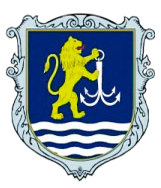METHODS FOR QUANTIFYING THE EFFICIENCY OF CARGO SHIP MAINTENANCE SYSTEMS
Abstract
Modern means of water transport, regardless of their purpose, are characterized by the complexity and redundancy of shipboard machinery, which in turn complicates ship maintenance systems. Therefore, it becomes essential to use reliable methods for assessing the effectiveness of maintenance systems The article considers promising methods for quantifying the effectiveness of cargo ship maintenance systems to develop effective algorithms and programs for assessing and improving the effectiveness of cargo ship maintenance systems. The analysis shows a lack of universality of existing methods for quantifying the efficiency of cargo ship maintenance systems. The purpose of the article is to synthesize a review of existing methods for quantifying the efficiency of cargo ship maintenance systems and to present the main approaches that form the basis for the study of maintenance systems for these ships and ship equipment. Results. Modern methods for assessing the efficiency of cargo ship maintenance are analyzed, the advantages and disadvantages of existing methods are considered, the consideration of which will allow the development of effective algorithms and programs for assessing and improving the efficiency of cargo ship maintenance systems, using intelligent advisory systems. Conclusions. For a successful quantitative assessment of the efficiency of cargo ship maintenance systems, the following aspects should be considered: data availability and quality, selection of an appropriate assessment method, understanding of the maintenance system, use of appropriate tools and technologies, analysis and interpretation of the results. A successful quantitative assessment of the efficiency of cargo ship maintenance systems can contribute to the sustainable development of the water transport sector and strengthen the position of Ukrainian shipping in the global transportation market in the following ways: increased efficiency, reduced environmental impact, improved reputation, reduced costs, and safety. Reliable maintenance systems can ensure the safety of vessels and crew, which is an important factor for the sustainable development of the water transport sector.
Downloads
References
2. Mathematical Statistics with Applications in R. (2021). In Elsevier eBooks. URL: https://doi.org/10.1016/c2018-0-02285-9.
3. Ramachandran, B., & Lau, K. (1991). Functional equations in probability theory. In Elsevier eBooks. URL: https://doi.org/10.1016/c2013-0-11048-3.
4. Thoft-Christensen, P. (1992). Reliability and optimization of structural systems ‘91. In Springer eBooks. URL: https://doi.org/10.1007/978-3- 642-84753-0.
5. Grabski, F. (2015). Semi-Markov Processes: Applications in System Reliability and Maintenance. In Elsevier eBooks. Elsevier BV. URL: https://doi.org/10.1016/c2013-0-14260-2.
6. Karatuğ, A., & Arslanoğlu, Y. (2022). Development of conditionbased maintenance strategy for fault diagnosis for ship engine systems. Ocean Engineering, 256, 111515. URL: https://doi.org/10.1016/j. oceaneng.2022.111515.
7. Nikolaidis, E., Ghiocel, D. M., & Singhal, S. (2007). Reliability Assessment of Ships. Engineering design reliability applications: For the Aerospace, Automotive and Ship Industries. CRC Press.
8. Vamvoudakis, K. G., & Jagannathan, S. (2016). Control of complex systems. URL: https://doi.org/10.1016/c2015-0-02422-4.
9. Designing and managing complex systems. (2023). In Elsevier eBooks. URL: https://doi.org/10.1016/c2020-0-03424-9.
10. Park, J., & Oh, J. (2022). Analysis of collected data and establishment of an abnormal data detection algorithm using principal component analysis and K-Nearest neighbors for predictive maintenance of ship propulsion engine. Processes, 10(11), 2392. URL: https://doi.org/10.3390/pr10112392.
11. Hollnagel, E. (1998). Cognitive Reliability and Error Analysis Method (CREAM): Qualitative Performance Prediction. In Elsevier eBooks (pp. 216–233). Elsevier BV. URL: https://doi.org/10.1016/ b978-008042848-2/50008-7.
12. Daya, A., & Lazakis, I. (2023). Developing an advanced reliability analysis framework for marine systems operations and maintenance. Ocean Engineering, 272, 113766. URL: https://doi.org/10.1016/j. oceaneng.2023.113766.





